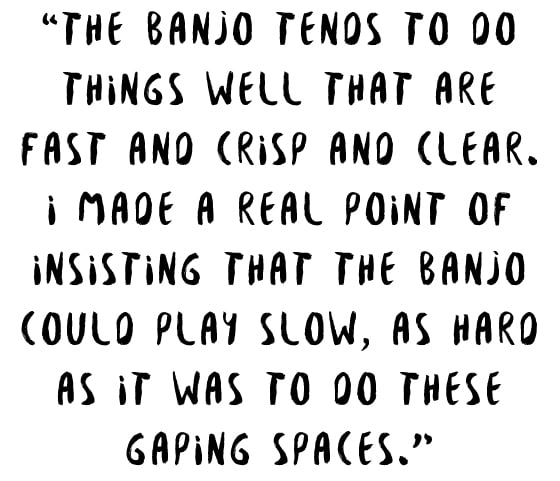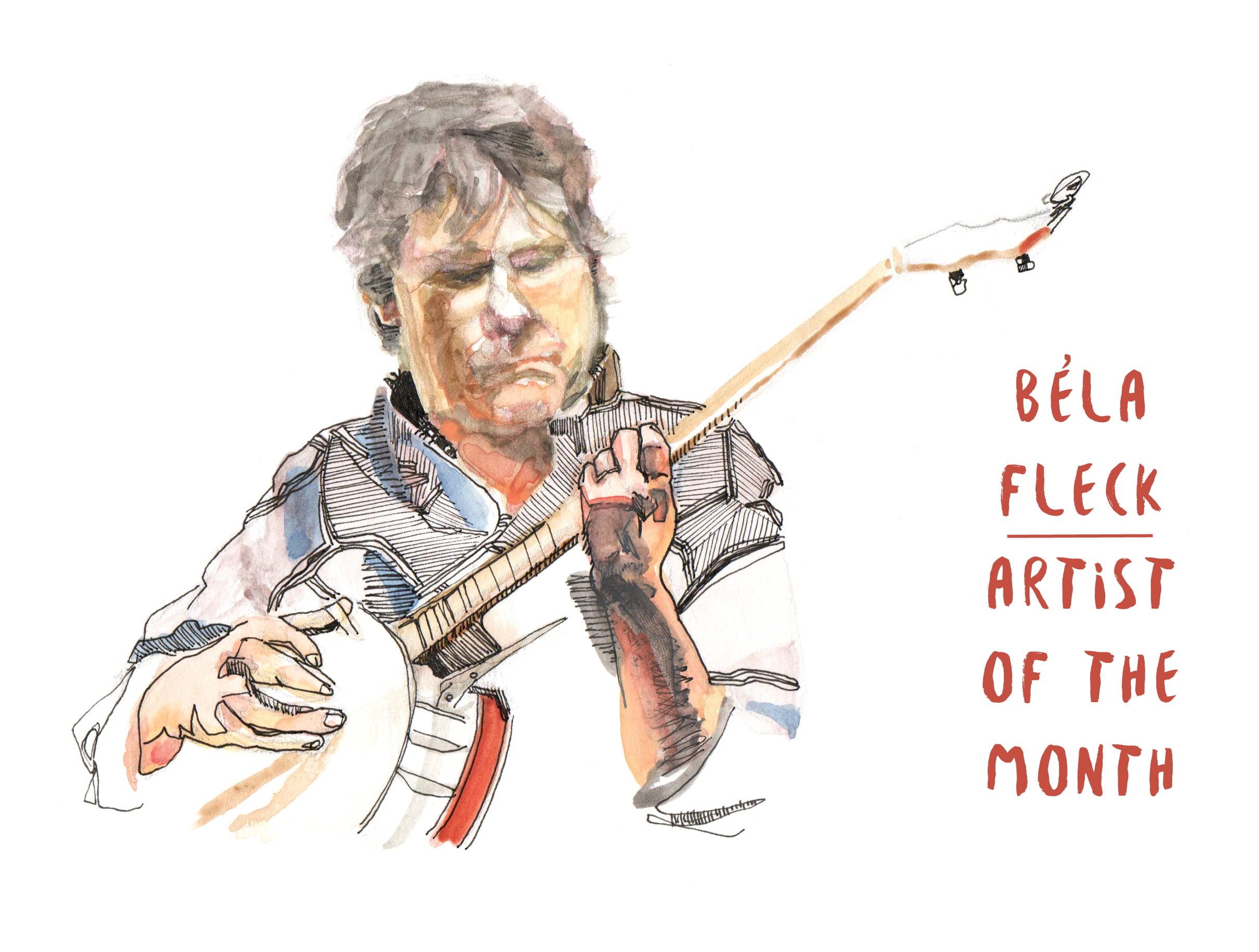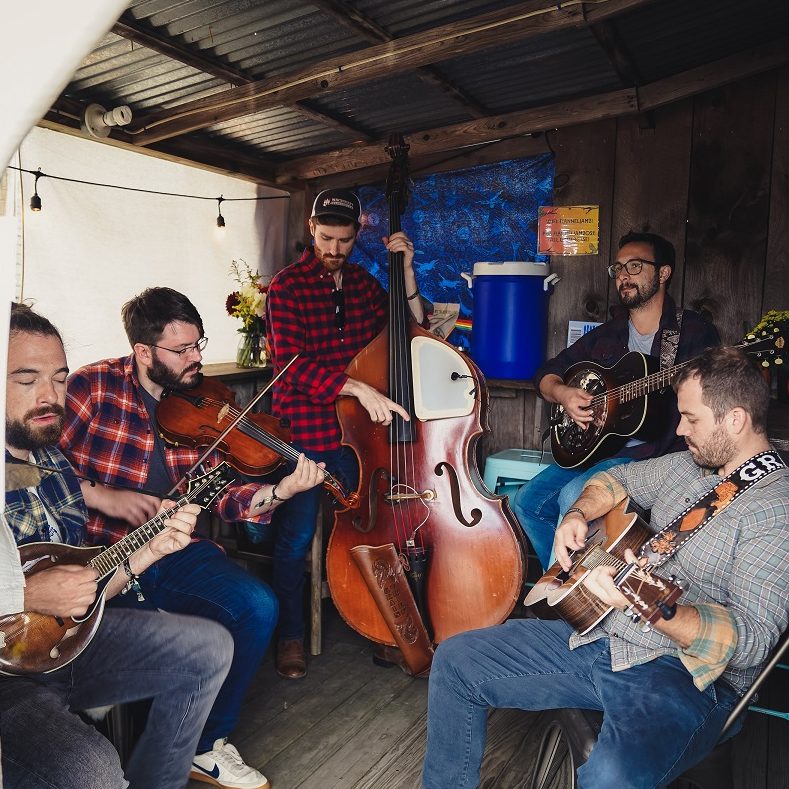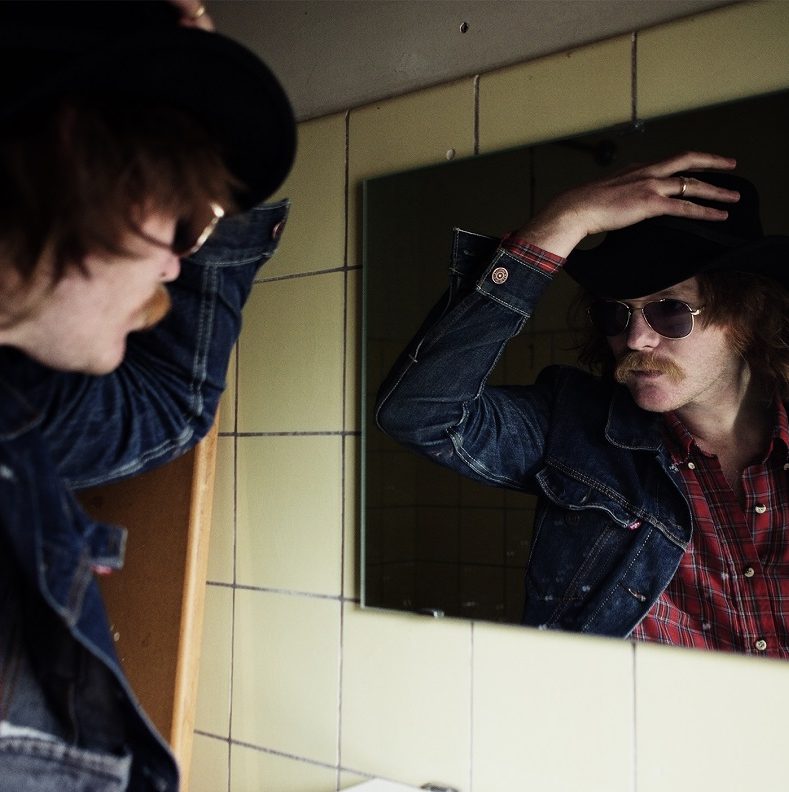Béla Fleck has explored chapter and verse over the course of his tome-length music career, but there remained one role he had yet to play — father. The world’s most inventive banjo player took on that title over three years ago when he and his wife, clawhammer banjo player Abigail Washburn, welcomed their son Juno. Parenthood inevitably shifted innumerable things for both musicians, not least of which included when and how to write music. “It’s all family-motivated,” Fleck explains about his life now. “How do you find the time to be a musician when you’re trying to be the best parent you can be? It was a new structure that I’ve never experienced before.”
It was especially tough at first. Fleck and Washburn received a standard warning from their doctor about Sudden Infant Death Syndrome (SIDS) prior to taking Juno home from the hospital, which left an indelible mark. “All I could think was, ’I’m not letting him out of my sight. I’m going to have my eyes on him 24/7,’” Fleck recounts. “When he slept, I would sit and watch him all night because we were all so spooked.” Composing at home, as opposed to concentrating on duet or band projects requiring his presence elsewhere, became a way to balance fatherhood with the musical identity he’d long inhabited. “That was the beginning of realizing you can get a lot of work done by yourself when you’re with your family,” he says. Fleck took to using naptime and nighttime to work out ideas he quickly captured on a recorder during other points of his day. “Creativity can be like maple sap coming out of a tree,” he says. “If you don’t collect it for a while, and you go back, there’s a whole bunch waiting for you. It really happens that way sometimes.” As a result of his newfound approach, Juno’s influence is everywhere. “Anybody who has kids knows how that works.”
It’s an influence that extends to Fleck’s latest project and second banjo concerto, Juno Concerto. Besides naming the project after his son, Juno’s thumbprint arises thematically throughout each of the three movements. “As a musician, I was trying to be who I was as a father, and I also wanted the music to express some of the ways I was feeling,” Fleck explains. “Some simpler emotions were coming out that I was not expecting to ever feel before I became a parent. I felt more comfortable with letting them be in the music and encouraging them, while still finding ways to be my complicated self in the middle of it.” The end result is cinematically striking, full of sweeping musical phrases and a seamless conversation between banjo and orchestra. “I didn’t expect to be playing over the full orchestra going crazy, but I had to be very aware of creating textures where the banjo could be heard and then creating places where I was either in support of the orchestra or not playing at all so I could be big and not distracting from the orchestra,” he says. “It’s like a David and Goliath heroic kind of thing, but they’re not competing. At their best, they lift each other up.”

If there’s one singular characteristic to Fleck’s career, it’s his willingness — his inclination — to push boundaries. Having recorded as a solo artist, a collaborative partner, and in an array of bands — including the Béla Fleck and the Flecktones — as well as a variety of styles, Fleck takes pleasure in erasing preconceived notions about where his instrument belongs. “I want it to be on the edge and something that hasn’t been done before,” he says about his approach. “That’s the whole reason to play music: expression and exploration.” Thanks to his boldness, Fleck has done much to quell ideas about high and low art. The banjo may have found its most familiar setting in bluegrass, but over the course of his career, Fleck has helped reveal its historical place in early jazz (bringing it up to speed in the modern era), its African lineage, and now its classical possibilities. “I’d prefer to be a wine that matured and got better than a wine that you need to drink when it’s young, because I’m not young anymore,” he laughs. “I’m trying to say something meaningful and trying to get deeper into honest, pure expression as I play music, whatever music I’m playing.”
Fleck composed his first banjo concerto in 2011 after receiving a commission from the Nashville Symphony Orchestra. “It’s a lot of fun when you’re composing. You’re just sort of ordering everyone around on paper,” he says. Appropriately titled The Impostor, it involved a good deal of posturing; Fleck concentrated — thematically and literally — in asserting the banjo’s place alongside more traditional classical instruments. But he didn’t include a true slow piece for the banjo, following a concerto’s typical fast-slow-fast structure. With Juno Concerto, he set out to answer that challenge. “The banjo tends to do things well that are fast and crisp and clear,” he says. “I made a real point of insisting that the banjo could play slow, as hard as it was to do these gaping spaces. It was a challenge.”

Juno Concerto didn’t fill an entire album’s worth of space, so — as he’d done with The Impostor — Fleck set about adding additional string pieces, recording “Griff” and “Quintet for Banjo and Strings: Movement II” with string quartet Brooklyn Rider. He originally composed “Quintet for Banjo and Strings” with Edgar Meyer in the early 1980s, but never got about to recording it. “It’s so good to have something like that to settle the dust of all the craziness of the pieces I like to write,” he says. And since he’s received one more commission to compose a concerto, he anticipates following suit by combining concerto and string pieces for that next album. “I didn’t intend to do the exact same thing, but then I started to think, ‘Well, if I do it three times, it’ll be a set,’” he says. “Three concertos with three string pieces, that becomes interesting.”
For all his experimentation, it might seem that nothing intimidates Fleck anymore. In fact, the bravery he’s developed by inserting himself into myriad musical conversations only comes about after months and months of hard work. “I’ve done so much stuff that, sometimes, I forget how hard I worked on each thing,” he says. “I have a pretty intense work ethic, and then when I’m done, I forget and I go back and listen to the record and go, ‘Oh that sounds pretty good.’ I don’t hear all the blood and guts that went into getting it to that level. But when I start on a new project, I go, ‘Wow, this doesn’t sound very good. Maybe I just don’t have it anymore. Maybe my good years are behind me.’ But I don’t realize that I spent months and months and months working on those projects that, in hindsight, makes them sound easy.”
If there are ever any doubts about his talent diminishing with age, Fleck’s work ethic seems likely to keep things in check, as well as his son. Growing up in a household with two world-renowned musicians means Juno has developed quite the ear. “He doesn’t realize how much he knows about music from being around it so much,” Fleck says. Still, there’s one point on which they continue to disagree. “He always asks me, when I play instrumental songs, ‘When’s the singing going to come in?’” Fleck jokes. “That kind of bothers me because I’ve made a life of trying to make believe that singing doesn’t have to be there for music to be good. I’ll play him a song and he’ll go, ‘Papa, that’s too long.’”
Lede illustration by Cat Ferraz.






